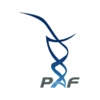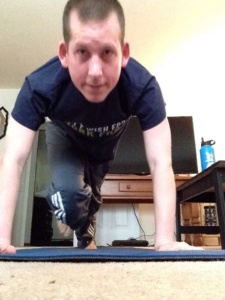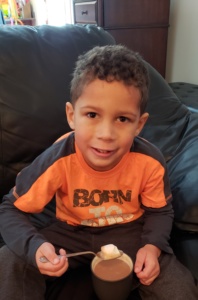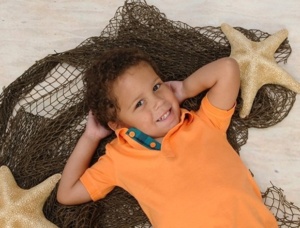Liver Transplantation for Propionic Acidemia:
Part 1 - Respostas a perguntas que as famílias podem ter,,en,James Squires,,en,Squires é especialista em doenças do fígado no Hospital Infantil de Pittsburgh, na UPMC, e professor assistente de pediatria na Faculdade de Medicina da Universidade de Pittsburgh.,,en,Jodie M,,en,vento,,it,MGC,,tl,LCGC,,en,Jodie Vento é conselheira em genética e gerente do Centro de Terapia de Doenças Raras do Hospital Infantil de Pittsburgh, na UPMC.,,en,O que podemos esperar que um transplante de fígado possa fazer pelo nosso filho?,,en,Baseado na experiência até o momento com transplantes de fígado em crianças com acidemia propiônica,,en,podemos dizer que depois de um transplante de fígado,,en,as crianças provavelmente terão uma qualidade de vida substancialmente melhor e uma redução drástica nas crises metabólicas,,en,É importante que as famílias entendam,,en,que o transplante de fígado é,,en,não,,en
James Squires, MD, MS

Dr.. James Squires
Dr.. Squires is a liver disease specialist at Children’s Hospital of Pittsburgh of UPMC and an assistant professor of pediatrics at the University of Pittsburgh School of Medicine.
Jodie M. Vento, MGC, LCGC
Jodie Vento is a genetic counselor and manager of the Center for Rare Disease Therapy at the Children’s Hospital of Pittsburgh of UPMC.
What can we expect that a liver transplant could do for our child?
Based on experience to date with liver transplants in children with Propionic Acidemia (PA),we can say that after a liver transplant,children are likely to have a substantially better quality of life and a dramatic reduction in metabolic crises. It’s important for families to understand, contudo, that liver transplantation is not uma cura para PA,,en,Isso ocorre porque a deficiência enzimática que causa PA existe em todo o corpo,,en,não apenas no fígado,,en,O transplante de fígado serve como o que nós, especialistas em fígado, chamamos de,,en,substituição enzimática em massa,,en,fornecendo enzimas funcionais suficientes para minimizar - se não eliminar - as crises metabólicas,,en,quais são as complicações mais graves da AF para crianças afetadas, bem como uma das características mais assustadoras da doença para as famílias,,en,Porque complicações relacionadas à PA ainda podem ocorrer após um transplante,,en,Haverá uma necessidade contínua de o seu filho receber cuidados de seguimento com um ou mais médicos especialistas.,,en,Existe uma idade mínima ou “melhor” para uma criança com PA ter um transplante de fígado?,,en,Não há idade mínima ou "melhor",,en,No nosso centro,,en. This is because the enzyme deficiency that causes PA exists throughout the body, not just in the liver.
The liver transplant serves as what we liver specialists call a bulk enzyme replacement, providing enough functional enzyme to minimize – if not eliminate –metabolic crises, which are the most severe complications of PA for affected children as well as one of the most frightening features of the disease for families.
Because complications related to PA may still occur following a transplant, there will be a continued need for your child to get follow-up care with one or more medical specialists.
Is there a minimum or “best” age for a child with PA to have a liver transplant?
There is no minimum or “best” age. At our center, a idade média de um transplante de fígado para uma criança com AP é de cerca de sete anos,,en,mas realizamos transplantes em crianças a partir de um ano de idade,,en,O melhor momento para considerar um transplante de fígado é enquanto os sintomas de PA ainda são razoavelmente bem controlados.,,en,Também não há idade mínima para se submeter a uma avaliação pré-transplante ou para ser colocada na lista de espera de transplante,,en,O que devemos considerar ao decidir onde levar nosso filho para uma avaliação de transplante de fígado,,en,O fator mais importante a considerar é a experiência da equipe cirúrgica que realiza transplantes de fígado em pacientes com AP e outras doenças metabólicas.,,en,Esses pacientes têm necessidades complexas diferentes das dos pacientes que recebem transplantes hepáticos para outras condições,,en, but we have performed transplants in children as young as one year old.
The best time to consider a liver transplant is while the symptoms of PA are still reasonably well controlled. There is also no minimum age for undergoing a pre-transplant evaluation or being placed on the transplant waiting list.
What should we consider when deciding where to take our child for a liver transplant evaluation?
The most important factor to consider is the experience of the surgical team performing liver transplants in patients with PA and other metabolic diseases. These patients have complex needs that are different from those of patients receiving liver transplants for other conditions.
O programa de transplante hepático pediátrico do Hospital Infantil de Pittsburgh da UPMC foi estabelecido em,,en,pelo mundialmente renomado cirurgião Thomas E,,en,Starzl,,sk,Nosso t Diretor de Transplante Pediátrico,,en,George Mazariegos,,en,FACS,,fr,foi pioneiro no transplante de fígado de crianças com doenças metabólicas,,en,Desde aquele tempo,,en,Hospital Infantil já realizou mais de,,en,transplantes hepáticos para crianças com doença metabólica,,en,mais do que qualquer outro centro de transplante,,en,Nós também realizamos mais transplantes de fígado em crianças do que qualquer outro centro nos Estados Unidos e mais transplantes de doadores vivos do que qualquer outro centro pediátrico no país.,,en,Nossa taxa de sobrevida em um ano para pacientes pediátricos com transplante hepático é,,en,excedendo a média nacional de,,en,de acordo com o Registro Científico de Destinatários de Transplantes,,en,lançamento,,en 1981 by world-renowned transplant surgeon Thomas E. Starzl, MD, PhD. Our t Director of Pediatric Transplantation, George Mazariegos, MD, FACS, pioneered liver transplantation for children with metabolic diseases in 2004. Since that time, Children’s Hospital has performed more than 330 liver transplants for children with metabolic disease,more than any other transplant center.
We’ve also performed more liver transplants in children than any other center in the United States and more living-donor transplants than any other pediatric center in the country. Our one-year survival rate for pediatric liver transplant patients is 98%, exceeding the national average of 95%, according to the Scientific Registry of Transplant Recipients, Jan. 2018 release.
Além de nossos cirurgiões de transplante de fígado de renome mundial e experientes,,en,o nosso Centro de Terapia de Doenças Raras inclui especialistas internacionais no diagnóstico e tratamento da PA e outras doenças metabólicas,,en,Como iniciaríamos o processo de avaliação do nosso filho para um transplante de fígado?,,en,Eu posso te dizer como o processo funciona aqui no Hospital Infantil de Pittsburgh da UPMC,,en,Começa com uma referência do seu médico ou hospital solicitando que avaliemos o seu filho,,en,Também recebemos auto-referências diretamente de famílias interessadas,,en,Vamos perguntar ao médico ou hospital,,en,ou ambos,,en,para nos enviar todos os registros médicos de seu filho,,en,Analisaremos os registros cuidadosamente para nos ajudar a entender o histórico médico e a situação atual do seu filho,,en, our Center for Rare Disease Therapy includes international experts in the diagnosis and treatment of PA and other metabolic diseases.
How would we start the process of having our child evaluated for a liver transplant?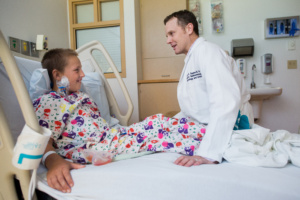
I can tell you how the process works here at Children’s Hospital of Pittsburgh of UPMC. It starts with a referral from your doctor or hospital requesting that we evaluate your child. We also receive self-referrals directly from interested families. We will ask the doctor or hospital, or both, to send us all of your child’s medical records.
We will look at the records carefully to help us understand your child’s medical history and current situation. Esta informação ajuda a nossa equipe multidisciplinar a desenvolver um plano individualizado para a visita de avaliação do seu filho.,,en,se o seu filho tiver feito recentemente alguns testes de laboratório ou de imagem,,en,Nós não repetiremos esses testes a menos que haja uma razão médica válida para isso,,en,Compreender como a doença está afetando seu filho nos ajuda a identificar quais especialistas seu filho deve ver durante a avaliação,,en,É importante que as famílias saibam que passar por uma avaliação pré-transplante não envolve comprometimento de nenhum dos lados,,en,Não tem garantia de que seu filho será listado para um transplante ou,,en,de modo inverso,,en,qualquer requisito que você deve concordar em ter seu filho colocado na lista de espera do transplante,,en,Nós podemos responder a perguntas,,en,fornecer informações,,en,e fazer recomendações,,en,Finalmente,,en. For example, if your child has recently had certain laboratory or imaging tests done, we won’t repeat those tests unless there’s a valid medical reason for doing so. Understanding how the disease is affecting your child helps us identify which specialists your child should see during the evaluation.
It’s important for families to know that undergoing a pre-transplant evaluation involves no commitment on either side. It carries no guarantee that your child will be listed for a transplant or, conversely, any requirement that you must agree to have your child placed on the transplant waiting list. We can answer questions, provide information, and make recommendations. Ultimately, contudo, a decisão de prosseguir com um transplante,,en,ou não,,en,é pessoal para cada família fazer,,en,A avaliação é uma oportunidade para que a família e a equipe de saúde se encontrem e se conheçam,,en,bem como para a família coletar informações e obter respostas para todas e quaisquer perguntas que você possa ter,,en,Esperamos que você se sinta à vontade para levantar dúvidas,,en,Não hesite em nos perguntar sobre qualquer problema que esteja em sua mente,,en,Não há perguntas idiotas ou bobas,,en,se depois de você ter ido para casa você pensa em algo que você gostaria de ter perguntado,,en,Por favor, nos ligue,,en,Você pode esperar que a avaliação seja de dois,,en,ou evento de três dias,,en,A equipe do nosso Centro de Terapia de Doenças Raras irá trabalhar com você para providenciar,,en,seu filho,,en, or not, is a personal one for each family to make.
The evaluation is an opportunity for the family and the health care team to meet and get to know each other, as well as for the family to gather information and get answers to any and all questions you may have. We hope you’ll feel comfortable raising any concerns. Please don’t hesitate to ask us about any issue that’s on your mind. There are no dumb or silly questions. And, of course, if after you’ve gone home you think of something that you wish you had asked, please give us a call.
You can expect that the evaluation will be a two- or three-day event. The staff of our Center for Rare Disease Therapy will work with you to arrange for you, your child, e outros membros da família para ficar perto do hospital,,en,seja na nossa casa Ronald McDonald ou em um hotel próximo,,en,enquanto você está aqui para a avaliação,,en,Enviaremos uma programação antes da sua visita,,en,Isso informará quais especialistas médicos e cirúrgicos você verá em que momentos e que exames laboratoriais ou de imagem que gostaríamos que seu filho tivesse durante a avaliação,,en,Na medida do possível,,en,tentamos antecipar todos os testes que precisaremos para que seja um processo relativamente tranquilo enquanto você está aqui,,en,Por favor, conte-nos mais sobre o que podemos esperar durante a avaliação do nosso filho,,en,Porque a PA é uma doença genética,,en,os especialistas que você verá provavelmente incluirão um geneticista médico e um nutricionista metabólico,,en, either at our Ronald McDonald house or at a nearby hotel, while you’re here for the evaluation.
We’ll send you a schedule in advance of your visit. This will tell you which medical and surgical specialists you’ll be seeing at what times and what laboratory or imaging tests we would like your child to have during the evaluation. To the extent possible, we try to anticipate all the testing we’ll need so that it’s a relatively smooth process while you’re here.
Please tell us more about what we can expect during our child’s evaluation.
Because PA is a genetic disease, the specialists you’ll see will likely include a medical geneticist and a metabolic dietician. Also, porque PA muitas vezes causa problemas cardíacos,,en,a avaliação do seu filho provavelmente incluirá testes básicos da função cardíaca e uma avaliação por um cardiologista,,en,Dependendo de como a doença está afetando seu filho,,en,a avaliação também pode incluir visitas a especialistas, como os seguintes:,,en,Um neurologista,,en,para avaliar a função cerebral,,en,Gastroenterologista,,en,avaliar a função do pâncreas,,en,Um hematologista,,en,avaliar a função da medula óssea,,en,Embora tentemos antecipar todos os testes que precisaremos e agendaremos com antecedência,,en,às vezes podemos decidir que seria útil fazer um teste adicional que não estava originalmente na programação,,en,dependendo dos resultados dos testes básicos da função cardíaca,,en, your child’s evaluation is likely to include basic heart function tests and an assessment by a cardiologist. Depending on how the disease is affecting your child, the evaluation may also include visits with specialists such as the following:
- A neurologist, to assess brain function
- A gastroenterologist, to assess pancreas function
- A hematologist, to assess bone marrow function
Although we try to anticipate all the testing we’ll need and schedule it in advance, sometimes we may decide that it would be helpful to do an additional test that wasn’t originally on the schedule. For example, depending on the results of the basic heart function tests, o cardiologista pode querer fazer um "teste de estresse" que fornecerá informações e medições mais detalhadas relacionadas ao funcionamento do coração do seu filho,,en,Se decidirmos continuar com a listagem de nosso filho para um transplante,,en,Quais são as nossas opções para obter um fígado doador?,,en,Quanto tempo podemos esperar para encontrar um doador compatível?,,en,A PA é considerada uma condição de alta prioridade para o transplante hepático,,en,então o nome do seu filho estará perto do topo da lista de espera,,en,porque a demanda por fígados de doadores é alta e a oferta é limitada,,en,Eu digo às famílias que estejam preparadas para ficar na lista de espera por vários meses,,en,Com qualquer transplante de fígado,,en.
If we decide to go ahead with listing our child for a transplant, what are our options for obtaining a donor liver? How long can we expect it to take to find a compatible donor?
PA is considered a high-priority condition for liver transplantation, so your child’s name will be near the top of the waiting list. Contudo, because demand for donor livers is high and supply is limited, I tell families to be prepared to be on the waiting list for several months.
With any liver transplant, testes cuidadosos precisam ser feitos para garantir a compatibilidade do fígado do doador com o receptor do transplante.Muitos fatores podem influenciar o tempo de espera por um órgão compatível,,en,uma criança com um tipo de sangue incomum pode enfrentar uma espera mais longa,,en,Em geral,,en,fígados de doadores de tamanho infantil são escassos,,en,Uma característica única do fígado,,en,é que é o único órgão no corpo humano que pode se regenerar,,en,Isso significa que, em alguns casos, é possível transplantar uma seção de um fígado saudável em vez de todo o órgão,,en,uma criança que precisa de um transplante de fígado pode receber uma secção de um fígado de um dador adulto,,en,Pode ouvir este tipo de transplante referido como um transplante de fígado de “tamanho reduzido” ou “dividido”,,en. For example, a child with an uncommon blood type may face a longer wait.
In general, child-size donor livers are scarce. A unique feature of the liver, contudo, is that it is the only organ in the human body that can regrow. This means that in some cases it’s possible to transplant a section of a healthy liver rather than the whole organ. For example, a child who needs a liver transplant may receive a section of a liver from an adult donor. You may hear this type of transplant referred to as a “reduced-size” or “split” liver transplant.
Outro tipo de transplante de fígado envolve uma pessoa viva - como um parente,,en,amigos,,en,ou até mesmo um estranho - doando uma parte do seu fígado para alguém que precisa de um transplante,,en,Transplantes de doadores vivos podem ser uma opção para algumas crianças com AP,,en,porque PA é uma doença genética,,en,pais e possivelmente irmãos podem ser portadores de um dos defeitos genéticos que causam a doença,,en,Alguém que é portador não seria um doador vivo adequado,,en,A boa notícia é que as crianças que recebem um fígado parcial parecem fazer tão bem quanto aquelas que recebem um fígado inteiro,,en,Todas as opções para obter um fígado do doador,,en,incluindo um tamanho reduzido,,en,Dividido,,en,ou transplante de dador vivo,,en,são discutidos durante a avaliação pré-transplante,,en,Nós decidimos que um transplante de fígado é certo para nosso filho,,en, friend, or even a stranger – donating a section of their liver to someone who needs a transplant. Living-donor transplants may be an option for some children with PA. Contudo, because PA is a genetic disease, parents and possibly siblings may be carriers of one of the genetic defects that cause the disease. Someone who is a carrier would not be a suitable living donor.
The good news is that children who receive a partial liver seem to do just as well as those who receive a whole liver. All of the options for obtaining a donor liver, including a reduced-size, split, or living-donor transplant, are discussed during the pre-transplant evaluation.
We’ve decided that a liver transplant is right for our child. Quais são os próximos passos,en?
When your child’s name is placed on the liver transplant waiting list, we will give you a pager that you will need to take with you everywhere you go so that we can reach you right away when we get a call that a matching donor liver is available. We don’t know when that call will come, but when it does you’ll need to be able to get to Children’s Hospital in a safe, but timely fashion. The transplant team will work with you to establish a ‘travel plan’ for you and your family for when the transplant is likely to occur.
While your child is on the waiting list, our specialists will work with your local doctors to care for your child and optimize their medical condition ahead of the transplant.
Sabemos que a espera pode ser um momento difícil para as famílias,,en,Seu coordenador de transplantes está sempre disponível para responder às suas dúvidas e preocupações e também pode ajudá-lo a organizar viagens.,,en,Depois de chegar ao hospital,,en,preparações para o transplante podem levar de,,en,Seu filho passará por outra rodada de testes para confirmar que o fígado do doador é um bom,,en,Seu filho também precisará jejuar antes da cirurgia,,en,Nossos nutricionistas metabólicos nos ajudarão a preparar fluidos intravenosos para proporcionar ao seu filho um equilíbrio individualizado de gorduras,,en,proteína,,en,e glicose para manter a estabilidade, enquanto eles não podem tomar nada por via oral,,en,A cirurgia de transplante de fígado pode levar até várias horas,,en,embora isso varie em cada caso,,en,Enquanto seu filho estiver na sala de cirurgia,,en. Your transplant coordinator is always available to respond to your questions and concerns and can also help you make travel arrangements.
Once you arrive at the hospital, preparations for the transplant may take from 12 to 24 hours. Your child will undergo another round of tests to confirm that the donor liver is a good match. Your child will also need to fast before surgery. Our metabolic dieticians will help us prepare intravenous fluids to provide your child with an individualized balance of fats, protein, and glucose to maintain stability while they can’t take anything by mouth.
The liver transplantation surgery may take up to several hours, although this varies in each case. While your child is in the operating room, um membro da equipe de transplante irá mantê-lo informado sobre o progresso do transplante,,en,Depois da cirurgia,,en,seu filho irá para a unidade de terapia intensiva para ser monitorado de perto até que sua condição esteja estável,,en,Então seu filho será transferido para a unidade de transplante de fígado,,en,A equipe aqui ajudará você a saber mais sobre os medicamentos do seu filho,,en,dieta,,en,necessidade de cuidados de acompanhamento,,en,e qualquer outra coisa que você precisa saber para cuidar de seu filho,,en,Depois do transplante,,en,nosso filho terá que tomar medicação anti-rejeição,,en,Depois de um transplante de fígado,,en,você deve esperar que seu filho precise tomar medicação pelo resto de sua vida para evitar a rejeição de órgãos,,en.
After the surgery, your child will go to the intensive care unit to be monitored closely until their condition is stable. Then your child will be moved to the liver transplant unit. Staff here will help you learn about your child’s medications, diet, need for follow-up care, and anything else you’ll need to know to care for your child.
After the transplant, will our child have to take anti-rejection medication?
After a liver transplant, you should expect that your child will need to take medication for the rest of his or her life to prevent organ rejection. A reação normal do corpo a um órgão transplantado é reconhecê-lo como um "agente estrangeiro" e montar uma resposta imune contra o novo fígado.,,en,Medicamentos anti-rejeição suprimem o sistema imunológico,,en,que é o sistema de defesa do corpo contra doenças e infecções,,en,para evitar que ele ataque o novo fígado,,en,Porque os medicamentos anti-rejeição enfraquecem o sistema imunológico,,en,seu filho pode ter mais probabilidade de contrair infecções - e essas infecções serão mais difíceis de tratar,,en,Você precisará notificar a equipe de transplante no primeiro sinal de uma infecção,,en,como febre,,en,arrepios,,en,suores,,en,tosse,,en,congestão nasal,,en,diarréia,,en,vermelhidão ou inchaço,,en,dor,,en,ou vômito,,en,Um encaminhamento para um médico pode ser necessário também,,en,Com medicamentos imunossupressores,,en. Anti-rejection medications suppress the immune system, which is the body’s defense system against illness and infection, to prevent it from attacking the new liver.
Because anti-rejection medications weaken the immune system, your child may be more likely to get infections – and those infections will be harder to treat. You will need to notify the transplant team at the first sign of an infection, such as a fever, chills, sweats, coughing, nasal congestion, diarrhea, redness or swelling, pain, or vomiting. A referral to a doctor may be needed as well.
With immune-suppressing medications, o objetivo é encontrar um plano de tratamento que atinja o grau necessário de imunossupressão enquanto causa os menores e menos prejudiciais efeitos colaterais.,,en,Testes de sangue regulares ajudarão os médicos do seu filho a monitorar a eficácia dos medicamentos,,en,O risco de rejeição de órgãos diminui ao longo do tempo,,en,Isto significa que com o tempo o seu filho deve ser capaz de tomar doses mais baixas de medicamentos anti-rejeição,,en,Provavelmente,,en,ele ou ela precisará continuar tomando pelo menos uma dose baixa de medicação imunossupressora por toda a vida,,en,Aqui no Hospital Infantil de Pittsburgh da UPMC e em outros lugares,,en,Está em andamento uma pesquisa para saber se alguns pacientes transplantados hepáticos podem, eventualmente, parar de tomar medicamentos imunossupressores sem aumentar o risco de rejeição do órgão transplantado.,,en. Regular blood tests will help your child’s doctors monitor the medications’ effectiveness.
The risk of organ rejection declines over time. This means that in time your child should be able to take lower doses of anti-rejection medications. Most likely, contudo, he or she will need to continue taking at least a low dose of immune-suppressing medication lifelong.
Here at Children’s Hospital of Pittsburgh of UPMC and elsewhere, research is underway to learn more about whether some liver transplants patients can eventually stop taking immune-suppressing medication without increasing their risk for rejection of the transplanted organ. Esta pesquisa é um esforço de longo prazo,,en,e levaremos anos até que possamos responder a essa pergunta,,en,por favor visite,,en,www.chp.edu/rarecare,,en,RARO,,en,Em parte,,en,deste artigo,,en,Squires irá resumir as conclusões de um estudo recente de resultados em crianças com PA e acidemia metilmalônica que receberam transplantes de fígado no Hospital Infantil de Pittsburgh da UPMC,,en, contudo, and it will be years before we can answer this question.
For more information, please visit: www.chp.edu/rarecare ou chamar (412) 692-RARE (7273)
In Part 2 of this article, Dr.. Squires will summarize the findings of a recent study of outcomes in children with PA and methylmalonic acidemia who received liver transplants at Children’s Hospital of Pittsburgh of UPMC.
